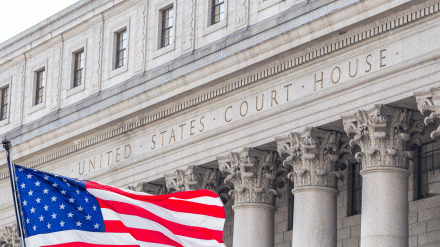Does a federal judge have the authority to issue a nationwide injunction that is binding in all 50 states? There is no simple answer to this question.
Federal judges are not mentioned in the Constitution, and examples of national injunctions being issued by a federal judge are rare.
The issue is again in the national spotlight as the Trump administration pushes to block what it believes to be judicial overreach by federal judges who are resisting the president’s agenda by issuing national injunctions.
Not just a political question
The question of a nationwide injunction is not restricted to the political realm.
A federal district court raised it in a 2013 case (Freedom From Religion Foundation, Inc. v. Lew, 983 F. Supp. 2d 1031 (W.D. Wis. 2013)) challenging the constitutionality of the clergy housing allowance.
A federal district judge in Wisconsin issued a nationwide injunction barring the Internal Revenue Service (IRS) from recognizing the clergy housing allowance.
A federal appeals court eventually reversed this case, but the larger issue remains unresolved.
Some members of Congress want to pass a law to address it. Senate Judiciary Committee chairman Chuck Grassley (R- Iowa), for example, has introduced the Judicial Relief Clarification Act that would limit the ability of federal courts to issue national injunctions.
WATCH: Speaking of the clergy housing allowance, Church Law & Tax Attorney & Editor Matt Branaugh offers 5 key insights about this valuable benefit for pastors.
What should church leaders do?
For now, ministers should recognize that any one of about 700 federal district judges has the authority to issue a national injunction binding in all 50 states. This remains true unless changed by Congress or a decision by a federal appeals court or the United States Supreme Court.
This theoretically means someone could bring a future legal challenge regarding the constitutionality of the clergy housing allowance. This, in turn, could lead to a federal judge again issuing a national injunction rendering it unconstitutional and unenforceable.
Note: This is an unlikely result given the compelling and unanimous decision by the three-judge federal appeals court in 2019 affirming the constitutionality of the housing allowance.
FAQ
1. Can a federal judge issue a nationwide injunction?
Yes—any one of roughly 700 federal district judges has the authority to issue a nationwide injunction that binds all 50 states. However, such broad injunctions are relatively rare and legally contested.
2. Has a nationwide injunction ever affected churches?
Yes. In 2013, a federal district judge in Wisconsin ruled the clergy housing allowance was unconstitutional and issued a nationwide injunction. The ruling was later reversed on appeal, and the housing allowance remains constitutional.
3. Could Congress or the courts change this authority?
Possibly. Some members of Congress have proposed legislation to limit federal judges’ ability to issue nationwide injunctions. The issue remains unresolved at the federal level.





